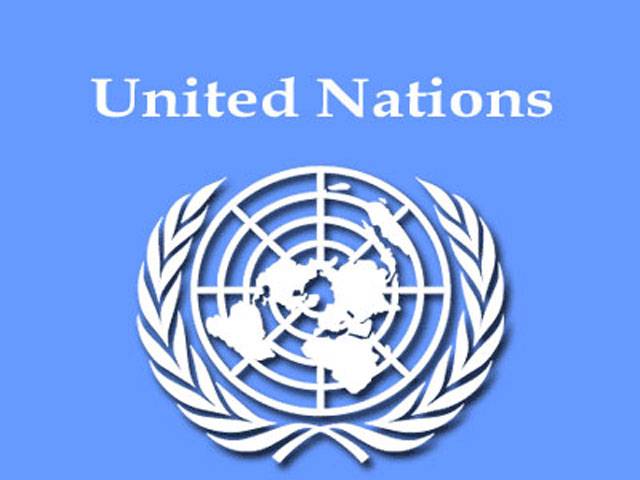UNITED NATIONS (AFP) - The UN Security Council launched emergency talks on North Korea’s most powerful nuclear test yet on Tuesday, as the international community called for swift action against Pyongyang.
The North said it had tested a “miniaturised” device - a claim that will fuel concerns it has moved closer to fitting a warhead on a ballistic missile - in response to US “hostility” and warned of stronger action to follow.
Confirmation of the test came from the North’s state media nearly three hours after seismic monitors detected an unusual tremor at 0257 GMT in the area of the Punggye-ri nuclear test site in the northeast of the country.
The event measured 5.0 in magnitude, according to monitoring stations of the Comprehensive Nuclear-Test-Ban Treaty Organization (CTBTO).
In what amounted to an implicit threat, North Korea’s foreign ministry said the test was only a first step and that any tightening of sanctions would trigger “even stronger second or third rounds of action.”
South Korea’s spy agency predicted the North might carry out another nuclear test or ballistic missile launch in coming days or weeks. Analysts said the timing appeared to be an attention-grabbing calculation from a state well-versed in provocative acts, coming just ahead of Obama’s State of the Union address at the start of his second term.
Chinese Foreign Minister Yang Jiechi summoned Pyongyang’s ambassador, expressing Beijing’s “strong dissatisfaction and firm opposition” to the test.
China’s economic aid provides a lifeline to impoverished North Korea, but analysts say Beijing’s leverage over Pyongyang is limited by its fear of a North Korean collapse, which could send a flood of refugees over the border.
Neighbors Japan and South Korea stressed the threat to their own national security, while Russia, NATO and the European Union all condemned the test as illegal and a flagrant violation of UN resolutions.
Russian Foreign Minister Sergei Lavrov said he expected the UN Security Council to deliver “an adequate response” to the test, the North’s first since its new, young leader Kim Jong-Un succeeded his late father Kim Jong-Il.
Security analysts said it sent an unequivocal message of intent on the back of a successful long-range rocket launch in December. “The launch and the test are empirical evidence that Kim and his regime have no intention of negotiating away the North’s nuclear program any time soon,” said Paul Carroll, program director at the US-based Ploughshares Fund.
On a technical level, experts will be hungry to know if North Korea has switched from plutonium to a new and self-sustaining nuclear weaponization program using uranium.
The statement issued by the North’s state-run KCNA news agency did not specify what fissile material was used, but noted that the test’s success had provided the North with a “diversified” nuclear deterrent.
The North has substantial deposits of uranium ore and it is much easier to secretly enrich uranium, which can be done with centrifuges rather than the nuclear reactor required for plutonium enrichment.
The explosion had a yield of six to seven kilotons, said South Korean defense ministry spokesman Kim Min-Seok, significantly more than the 2006 and 2009 tests which both used plutonium. US intelligence agencies, which said Pyongyang had “probably carried out an underground nuclear explosion,” put the yield at “approximately several kilotons.”
The explosive yield compared with 15 kilotons in the world’s first atomic bomb dropped by the United States on Hiroshima in 1945.
The latest test throws down a stark security and diplomatic challenge to Obama as well as to new Chinese leader Xi Jinping.
“North Korea represents a serious threat to the US. We’ve got to be prepared to deal with that,” outgoing US Defense Secretary Leon Panetta said.
Paik Hak-Soon, a North Korea expert at the Sejong Institute in Seoul, said Kim Jong-Un was intent on triggering a crisis that would force the international community to negotiate on his terms.
“The UN is running out of options and probably knows new sanctions would only have a limited impact,” Paik said.
“The only real option for curbing further provocation is starting a dialogue with the North, but that will be very difficult given the domestic political pressure on leaders in the US, South Korea and Japan.”
Friday, April 26, 2024
UN Council meets on nuclear test

11 outlaws arrested in district raids
April 26, 2024
SSP holds meeting to enhance traffic flow
April 26, 2024
US vows to continue strengthening ties with Pakistan
9:54 AM | April 26, 2024
KPPSC chief calls on KP Governor, presents annual report
April 26, 2024
Swati vows to run KP assembly affairs indiscriminately
April 26, 2024
Economic Challenges
April 26, 2024
No Compromise
April 26, 2024
Strength and Solidarity
April 26, 2024
Musk vs Australia
April 25, 2024
Reforming Rehab
April 25, 2024
Photon power
April 26, 2024
Justice prevails
April 26, 2024
Ending animal suffering
April 25, 2024
AI governance
April 25, 2024
AI concerns
April 25, 2024
ePaper - Nawaiwaqt
Advertisement
Nawaiwaqt Group | Copyright © 2024





